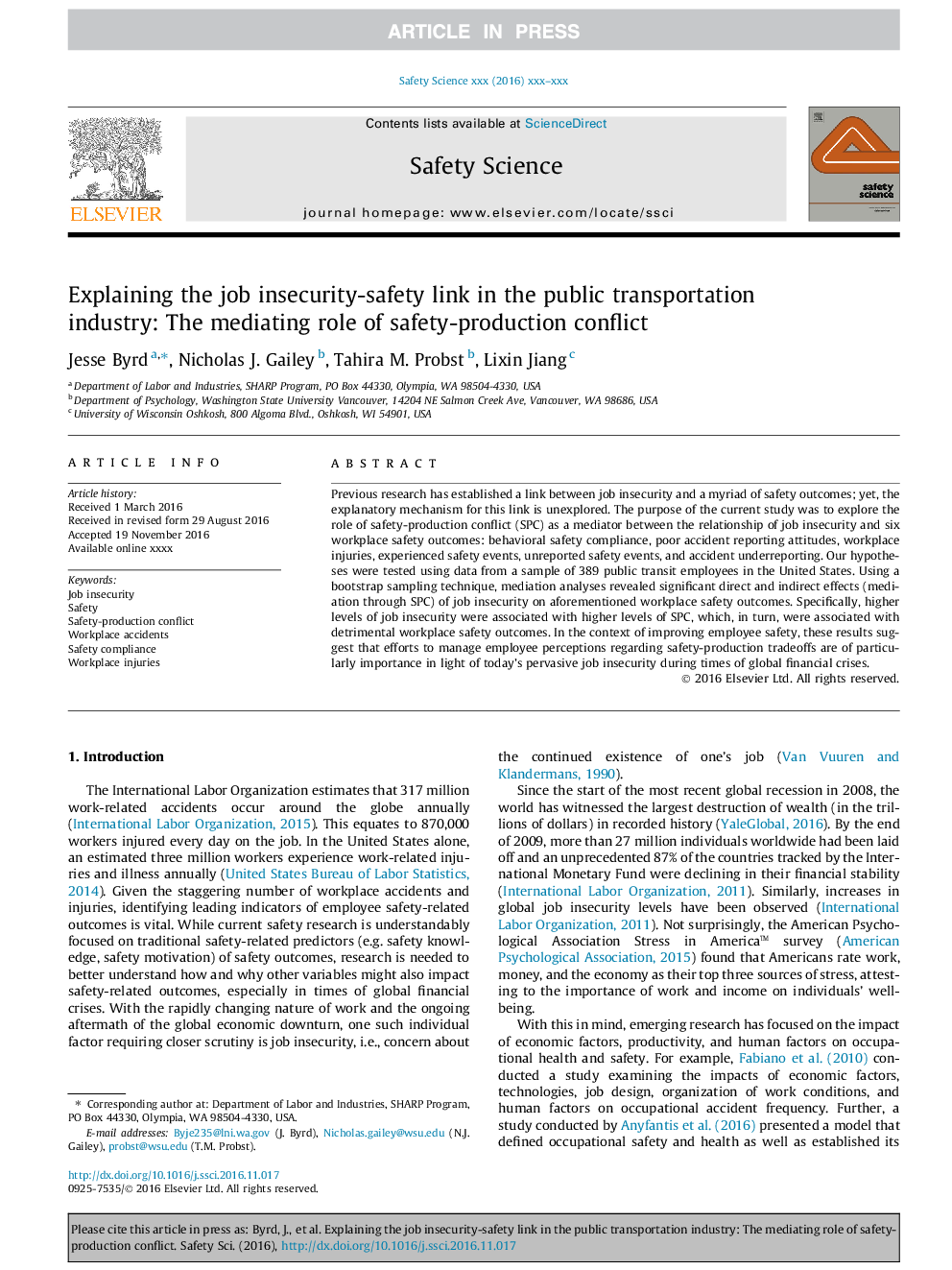| Article ID | Journal | Published Year | Pages | File Type |
|---|---|---|---|---|
| 6974881 | Safety Science | 2018 | 8 Pages |
Abstract
Previous research has established a link between job insecurity and a myriad of safety outcomes; yet, the explanatory mechanism for this link is unexplored. The purpose of the current study was to explore the role of safety-production conflict (SPC) as a mediator between the relationship of job insecurity and six workplace safety outcomes: behavioral safety compliance, poor accident reporting attitudes, workplace injuries, experienced safety events, unreported safety events, and accident underreporting. Our hypotheses were tested using data from a sample of 389 public transit employees in the United States. Using a bootstrap sampling technique, mediation analyses revealed significant direct and indirect effects (mediation through SPC) of job insecurity on aforementioned workplace safety outcomes. Specifically, higher levels of job insecurity were associated with higher levels of SPC, which, in turn, were associated with detrimental workplace safety outcomes. In the context of improving employee safety, these results suggest that efforts to manage employee perceptions regarding safety-production tradeoffs are of particularly importance in light of today's pervasive job insecurity during times of global financial crises.
Related Topics
Physical Sciences and Engineering
Chemical Engineering
Chemical Health and Safety
Authors
Jesse Byrd, Nicholas J. Gailey, Tahira M. Probst, Lixin Jiang,
